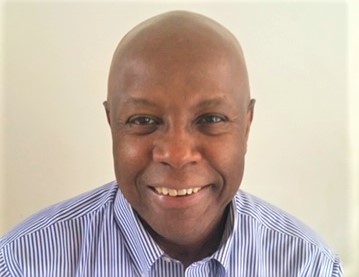Franks: Biden’s Jim Crow 2.0 remarks are the worst hyperbole to date

Courtesy Photo
Gary FranksPresident Joe Biden’s claim that being against the Democrats’ version of voting rights in 2022 is equivalent to being for Jim Crow 2.0 gives hyperbole a bad name.
In the 19th century, most Southern states had a majority or near-majority Black population because of slavery. To prevent this majority from politically controlling those states — Mississippi actually had two Black U.S. senators and the nation had 20 Black U.S. House members, all Republicans — the white population, thanks to a highly questionable election in 1876, put an end to Reconstruction which had helped Black people and resorted to Jim Crow practices, which Democrats had established.
White Democrats installed a literacy test, a difficult hurdle as it was against the law for Blacks to read; a grandfather clause, which meant that unless your grandfather voted you could not (thus, a Black person had to be part white to vote); and a poll tax, since most Black slaves did not own property. Minus property, they were excluded from voting unless they inherited land (and were half-white). These exclusions were in place in many southern states.
The Voting Rights Act of 1965 made it necessary in those southern states — which practiced overt discrimination to suppress if not eliminate the Black vote — for the federal government to review all election law practices and changes in the future.
Due to the great progress in Black voting participation made over the decades, the U.S. Supreme Court felt it was no longer necessary to ensure such federal intervention.
For starters, the voting rights bills being considered by Congress today are not technically an extension of the original 1965 Voting Rights Act. They add to the Act. I think those who voted overwhelmingly for the Voting Rights Act in the past would be flabbergasted by the current proposals.
For instance, advocates for today’s version of the Voting Rights Act are calling for a national voting holiday, provisions of water and food for voters waiting in line, and a way to have a substantial percentage of votes cast from voters’ living rooms via absentee mail-in ballots.
And with technology available for voters to better identify themselves who would have thought that a government-issued photo ID would be deemed a vehicle for Black voter suppression? It makes one think something foul is happening if this modest provision is now considered a “threat” to democracy.
Having a ballot application mailed to people’s homes even when not requested also leaves itself open to mischief. Americans are highly mobile. For example, hundreds of thousands of ballot applications in various states were returned to the Secretary of State as the postal service was not able to deliver them. Back in the day, these folks would be identified through canvassing, divided by party affiliation, and still somehow managed to vote. Without proper ID it wasn’t difficult.
Why party affiliation? So that there would be no chance of a person voting twice which would alert officials. I am sure these practices have been addressed and corrected.
On gerrymandering of congressional districts, I expressed my objection to racial gerrymandering to former President Bill Clinton in a White House meeting with the Congressional Black Caucus. The CBC’s anger was immediate. They were in favor of racially gerrymandered districts. That same day, an emergency meeting was convened, and I was voted out of the CBC, at least temporarily.
Worst yet, Congresswoman Cynthia McKinney’s father was arrested for attacking me on the stairs of a Savannah courthouse following my testimony before a U.S. Appeals Court on this issue.
Over time it was proven that my election to Congress was not an aberration — for white people would vote for a Black person, duh! In fact, most of the growth of the CBC since my departure from Congress has come from Black members representing white congressional districts.
Racial or partisan gerrymandering is equally wrong, and the courts are presently equipped to address each when contested.
No one should have to wait an inordinate amount of time to cast a vote. With the days being extended, it becomes hard to imagine this being a problem, but it’s an easy fix on the local and state levels. Imagine a supermarket. When the lines get long a new cash register is quickly opened. We can fix this without making it a federal issue.
Thus, to abolish the Senate filibuster over the above-mentioned concerns seems like a solution waiting for a problem.
Lastly, it should be noted, a higher percentage of Black people voted in the 2012 election of former President Barack Obama than the percentage of eligible white voters as reported in the Washington Post. And voting records were strong in the 2016 elections across the board.
So, where is the problem?
Gary Franks served three terms as U.S. representative for Connecticut’s 5th District. He was the first Black Republican elected to the House in nearly 60 years and New England’s first Black member of the House. Host: podcast “We Speak Frankly.” Author: “With God, For God, and For Country.” @GaryFranks



